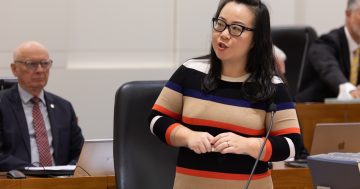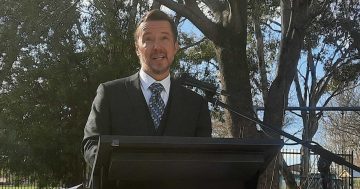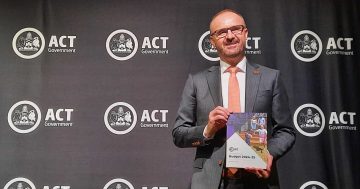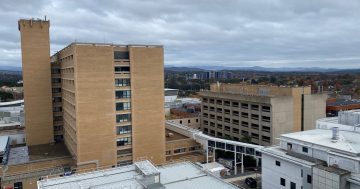
The 2017-18 ACT Budget was always going to be shaped by its status as a post-election budget. The commentary was always going to be focused on how the Government was going to deliver on its election promises against the challenging background of limited options to raise revenue and limited discretionary expenditure, given that so much of our revenue is required to deliver quality health, education, justice and municipal services for the city.
Given this, it is no surprise and completely appropriate that this year the ACT Government has focused on delivering on core election commitments, with large investments being made to support health infrastructure, transport infrastructure and education infrastructure and support. These investments have been broadly welcomed by commentators and it is hard to argue the need to ensure that we have modern health facilities, fit-for-purpose school facilities, and infrastructure to make our city works.
Given my areas of interest are in areas of supporting low-income, disadvantaged and vulnerable Canberrans, I am used to needing to look hard to find the commitments that I am looking for in budget statements. This year it was no different, and it took me a long while to find what I was looking for buried in supplementary papers released as part of the budget paper package.
I did find some good initiatives, however, and there are areas where there are welcome additional investments, including in the areas of responding to domestic and family violence, mental health, support for people with a disability and justice. Perhaps unsurprisingly, there are some significant gaps and missed opportunities, and there is still much to do to better support our most vulnerable citizens.
One real positive is that the community is now benefiting from the dividends of the safer families levy that was introduced to deliver better domestic and family violence responses. This levy has enabled additional investment in frontline support and legal services, and the investments made last year continue this year. This budget has also included funding for the development of a Family Violence Hub, which is an innovative service delivery model which provides wrap-around services to families in crisis and recovery. The current investment is around half a million dollars over the next four years is a good start and let’s hope that it is properly funded in the long term.
The recognition of the need to support access to mental health services, including support for young people in schools and needing acute services will have a significant positive impact on the well-being of our whole community. The investment of almost $24 million will make a real difference in supporting people who are in need of mental health support, an area where people currently struggle to access the services they need at the time that they need them.
With the rollout of the National Disability Insurance Scheme (NDIS) in full swing, it is important to see ongoing investment to ensure students with a disability are able to access inclusive education, that the capacity of services supporting people with disabilities and coordination of the NDIS system is supported. A missed opportunity in this budget is supporting people who fall out of the NDIS but still require support due to a disability.
A very welcome initiative is the continuation of the Throughcare Initiative that supports people exited the justice system, ensuring that they have supports in place to re-integrate into the community in a way that is supported. This is an innovative and evidence-based program that will deliver outcomes that far exceed the $5.3 million investment made through this budget.
Given the priority issues of homelessness and affordable housing, it was surprising that this was not given a higher priority in this budget. There is significant investment in public housing renewal which is needed, and it pleasing to see an additional $1million to support specialist homelessness and housing support services, and around $700,000 to commence planning for innovative housing models such as Common Ground and accommodation for people with high needs. It is not close to being enough, and really disappointing that ways of delivering affordable rental affordable options for low-income housing has not been addressed – perhaps the upcoming Homeless Summit will be an opportunity to develop models that can be funded in future budgets. A good initiative is the Government’s introduction of a ‘vacancy tax’ which aims to ensure that homes that can be rented don’t stand empty. It’s a good initiative particularly given we have the second highest rate of homelessness in Australia.
There are some other positive investments, including ongoing support for the Safe Schools Initiative, and funding for a new health facility for Aboriginal and Torres Strait Islander people, to be delivered in partnership with the Winnunga Nimmityjah Aboriginal Health Service.
So, a solid budget, with no surprises, and one that aims to respond to a range of issues and concerns. As always, there is much more work to do to reach the admirable aim that of Canberra’s becoming Australia’s most inclusive city, particularly to ensure that this is a community that belongs to everyone and one that supports and enables everyone to reach their potential.
Do you think the budget has done enough to support our most vulnerable citizens?
Rebecca sits on a number of community-based boards including the Early Morning Centre and Community Housing Canberra. She ran as an ACT Greens candidate in the last Territory budget.





















